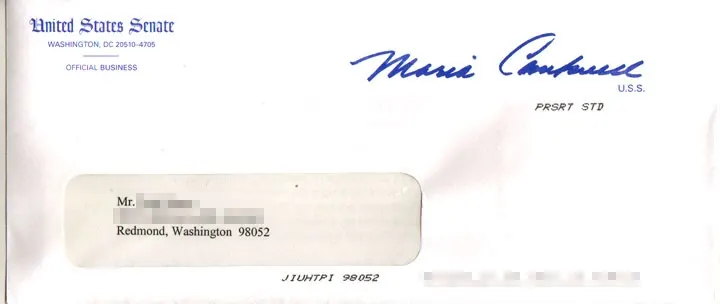Franking privileges allow lawmakers to send mail to constituents without having to pay postage.
A copy of the member’s signature replaces the stamp on the envelope.
Authentic signatures of famous individuals are often valuable collectors’ items.

Origin of “Franking Privileges”
Franking privileges in Congress date from the First Continental Congress of 1775.
Opportunity for abuse exists and has prompted calls for reform.
According to the Congressional Research Service report: Franking Privilege: Historical Development and Options for Change:
Strong criticism of the franking privilege developed regarding the use of the frank as an influence in congressional elections and the perceived advantage it gives incumbent Members running for reelection.
Contemporary opponents of the franking privilege continue to express concerns about both its cost and its effect on congressional elections.
Limits on and oversight of franking exist today.
The House has appointed a franking commission too:
(1) issue regulations governing the proper use of the franking privilege;
(2) provide guidance in connection with mailings;
(3) act as a quasi-judicial body for the disposition of formal complaints against Members of Congress who have allegedly violated franking laws or regulations.
Use of “Franking Privileges” in a sentence
- Franking privileges allow members of Congress to send mail to their constituents without having to pay postage, a benefit that can be crucial for maintaining open lines of communication.
- Critics argue that franking privileges can be misused for political gain, as incumbents can send out mass mailings that effectively serve as campaign materials at the taxpayers’ expense.
- Despite the rise of digital communication, franking privileges remain an important tool for Congress members to disseminate information about legislative updates, upcoming town hall meetings, and other relevant news to their constituents.